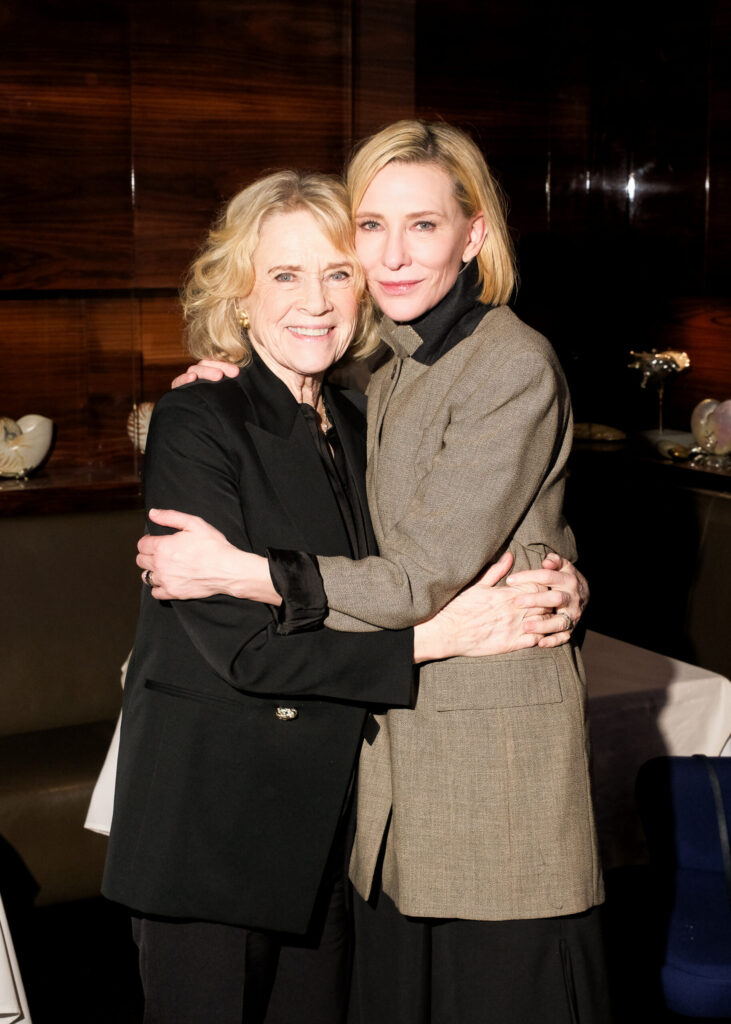SATURDAY 9:12 PM DECEMBER 14, 2024 MIDTOWN
At The Museum of Arts and Design last Saturday night, Cate Blanchett gathered cinephiles and industry stalwarts for a private screening of Ingmar Bergman’s Persona, the groundbreaking, uber-stylish and perennially referenced 1966 psychological thriller starring Liv Ullmann and Bibi Andersson. If most of us first encountered the film on the mood board of an eager film student on our first day of college, Ullmann tries not to think too hard about the movie’s overwhelming legacy. “Well, it’s been so much a part of my life because I was 24 when I made it,” she told Jeremy O. Harris when asked about Persona‘s enduring influence at a reception following the screening. “I met the father of my child, and we became close friends for the rest of our lives.” Below, she and Harris discuss the films Ullmann’s most proud to have made and the screen adaptation of A Doll’s House she and Blanchett tried to get off the ground nearly 20 years ago.
———
JEREMY O. HARRIS: What does it feel like to know that a film you made at such a young moment in your life, one that you said was so fun and freeing to make, is now on every mood board? For every movie, it’s on the mood board. For every fashion shoot, it’s on the mood board. It’s one of the most referenced movies of all time. What does that mean for you?
LIV ULLMANN: Well, it’s been so much a part of my life because I was 24 when I made it. And it was an incredibly fun production. Everybody was happy. And Ingmar, who wanted to quit making movies, so this was his last, he wanted to immerse himself. He had so much fun. So that’s what I’m thinking about. And I met the father of my child, and we became close friends for the rest of our lives. So that is what I’m thinking about. I’m not thinking about that other thing.
HARRIS: You’re not thinking about the journey of the movie?
ULLMANN: No.
HARRIS: Wow.
ULLMANN: I’m thinking, but not the way you say. And it’s not me, you know?
HARRIS: Yeah.
ULLMANN: It’s a man changing his life somehow. Not because of me, but because he made that movie, and it certainly made him. Now, when I see it with the audience, I’m a little ashamed. Like, “Oh, it’s so dark. Nothing good is coming to you.” So I’m more connected to the movie production itself, and that’s 60 years ago.
HARRIS: When you think about that time, and the fact that this man became the father of your child, does it feel surreal to know that you were making it with his ex-partner, who was also a friend, and you were about to become his new partner?
ULLMANN: No, I was married, he was married. That just happened. And we have always been connected, making so many movies together. And my husband, who I can speak for, he was my best friend. He remarried and was happy. I married after Ingmar. Ingmar married after me. The thing is, we were just beautifully connected.
HARRIS: That’s so evolved. So few people feel that way. I just saw your grandson’s film.
ULLMANN: Yes.
HARRIS: It was amazing. What does it feel like to know that you’ve birthed so much art?
ULLMANN: Oh, I am so proud of him, and he’s so wonderful. And in many ways, it’s not like this movie, but it is a movie about fear. He’s been very open in interviews that he has real fear, and his movie is about that. And he’s young.
HARRIS: He’s so young.
ULLMANN: He’s going to make a lot of movies. And his talent has nothing to do with who his mother and father are, or who his grandparents are. He has his own baby now. And I think that’s the only painful thing he experience, people saying, “Oh yes, he’s the grandchild.” He’s so unique in his own talent.
HARRIS: I also was so curious about your role as a theater director. You and Cate [Blanchett] were talking earlier about your time making A Streetcar Named Desire. When I was looking that up, it seemed that you were also going to perhaps direct her in a film version of A Doll’s House.
ULLMANN: Yes. She stayed with me for a long time while I did. And then she became pregnant.
HARRIS: What?!
ULLMANN: Yes, she became pregnant, so she had to jump off. And then I got Kate Winslet. And she stayed for a year, and we had all the money except the Norwegian money. But that’s the thing in Norway—if you’re Norwegian, things are more difficult, you know? So I never got all the Norwegian money, so it was never made. But the script is there and—
HARRIS: Can you make it?
ULLMANN: Oh, no, no, no. This was 20 years ago.
HARRIS: I need it. You should do it with that young woman who’s in your grandson’s film.
ULLMANN: I’m never working again, but Cate would’ve been wonderful.
HARRIS: Oh my gosh. I’ve also read your autobiography and—
ULLMANN: Which one? There’s one about films and so on, the other about refugees.
HARRIS: Yeah, the one about films.
ULLMANN: Okay.
HARRIS: And, of course, all of your work as a humanitarian is also there. What is the piece of work you’re most proud of, that you want people to think of when they think of Liv Ullman?
ULLMANN: I don’t know. I like two movies by Jan Troell, The Emigrants and The New Land, about people that are refugees from their own country because they can’t live there anymore. It was a great success, but many, many years ago, 40 or 50 years ago.
HARRIS: Did you see any movies this year that you liked?
ULLMANN: I would say my grandson’s.

